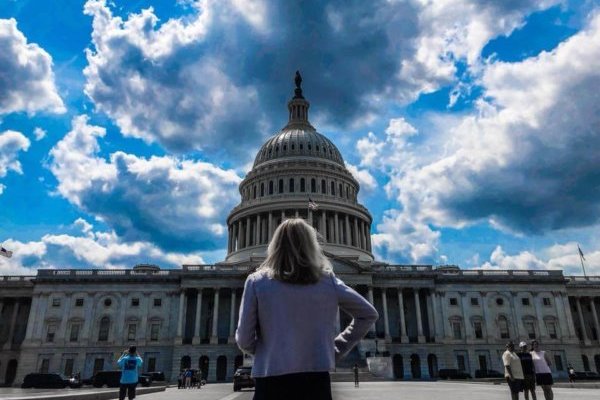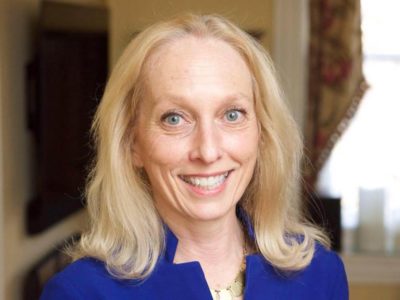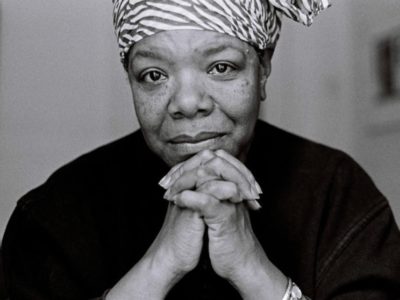Pennsylvania ranks 49 out of 50 states in terms of hosting a diverse and representative congressional delegation. Men currently hold all 18 House seats and the two senatorial spots in Pennsylvania. Pennsylvania has never had a female governor, nor any female Senators. It’s a shocking statistic coming from a northern, mid-Atlantic state. But with the Year of the Woman 2017 sparking intense waves of female empowerment, states all around the country, including Pennsylvania, feel an energizing surge of change. Mary Gay Scanlon, a lawyer from Pennsylvania’s 5th Congressional District, has her own plans for the 2018 midterm elections. After winning her district’s Democratic primary, she will move on to face another woman, Pearl Kim, in the November midterms. “My expectation for November,” Scanlon said, “that Pennsylvania will finally have a woman in its congressional delegation.”
CAREER TIMELINE
1980: Graduated from Colgate University with Bachelor’s
1984: Earned her Juris Doctor from the University of Pennsylvania
1984: Became a judicial clerk for the Superior Court of Pennsylvania
1985: Began her career in public interest when the Support Center for Child Advocates chose her to represent an 11-year-old abuse victim
2006–2007: Appointed Vice Chair of the Tax Commission
2007–2015: Member of the Wallingford-Swarthmore School District Board
2009–2011: Served as President of the School Board
2018: Won the Democratic nomination for Pennsylvania’s 5th congressional district
Present: Mary Gay Scanlon works as Pro Bono Counsel for Ballard Spahr

Q&A WITH POWERFUL WOMAN LEADER MARY GAY SCANLON
Q: At College Magazine, we’re working with EMILY’s List, Emerge America, Human Rights Campaign, Higher Heights, She Should Run, Running Start, Victory Fund and IGNITE on an initiative to fight for equal representation in Congress called 50 by 2050. What are your thoughts on the goal of achieving 50 percent of women in Congress by 2050?
A: I completely support it, obviously. It’s hard not to feel discouraged when you look at the number of women who have served in Congress. I was actually looking at statistics last night and when my mother was born there were only eight women in all of Congress—that was less than two percent. When I was born there were 19 women in Congress—that was less than four percent. By the time my daughter was born there were 33 women in Congress, but that was still less than seven percent. It wasn’t until the year after she was born, 1992—the first year of the woman—when we finally cracked ten percent. And that’s pretty recent! Right now there are 104 women in Congress, that’s 19.4 percent.
Given the number of women running, we should crack 20 percent this year in 2018. I was really nerdy, I went and graphed it out, and there is nice acceleration here in the last couple decades, and it certainly is doable. The pace of change is accelerating, but we really need to work hard to create the kind of reflective democracy you’re talking about. I think one of the big things is we need to help women and families overcome barriers that inhibit employment as well as public service such as pay equity and quality child care.
Q: Did you face any specific challenges as a woman running for office?
A: Pennsylvania has a pretty bad track record for electing women. It has an even smaller percentage of elected state officials than Congress does. We’ve never had a female governor or senator. There’s currently no women in Pennsylvania’s congressional delegation. We have 18 male congressmen and two male senators.
That means there aren’t a lot of female role models, whether for women aspiring to run for office or for voters. That gets reflected. When you’re running, people aren’t expecting to see a woman often. You can be undervalued or just overlooked—particularly if you’re someone of a shorter stature as I am.
I actually had an experience about a week ago. I got in an elevator and as people filed into the elevator I got pushed to the back corner by a bunch of businessmen who came in and occupied the central space. They were very engaged in their own conversation, sort of yukking it up and as we went up in the elevator someone else got on. He knew me and said, “Oh, congratulations on winning” and “Are you stressed out?” One of the businessmen, who occupied the center of the elevator, turned to me and said, “Well, what do you have to be stressed out about?” I responded, “I’m running for Congress,” and his attitude changed quite a bit. I was the last person on that elevator he expected to be running for Congress.
Q: What’s it like running against another female candidate?
A: We haven’t gone face-to-face yet. One of the nice things is it takes the issue of gender off the table, and we can talk about who’s the more qualified. Although in the primary, by the end, we had six women and four men running. The really interesting thing about that race was that, for a change, the men were on the defensive.
Given all the talk about the Year of the Woman, the energy among the female electorate and the fact that the congressional seat here was vacated because of a #MeToo issue with the incumbent. The male candidates were actually asked point blank, “Why do you think you should be running now when there are qualified women in the race?” They were pressed to justify their presence on the ballot.
Q: You’ve worked extensively with education through your law experience. Will this be the basis of your platform and your focus if you make it to Congress?
A: Certainly that has been the touchstone of my career, trying to provide a better future for children, whether it’s through education or nutrition or job training, trying to make the future better. My career has also been involved quite a bit with immigration law, particularly in the last 18 months.
I’ve spent the last 15 years working on voter’s rights issues. That’s one of the things that got me into this race—the belief that our democracy isn’t going to work for any of the other issues unless we protect the right to vote and address issues of gerrymandering and voter suppression. There’s some foundational issues in our democracy that we need to deal with right now and those are very much top-of-mind for me.
Q: What are you looking forward to in potentially serving as a congresswoman for the first time?
A: I’m looking forward to working on the same issues I’ve been working on, just in a new venue. I know I’m nerdy, but as a lawyer the whole issue of the “rule of law” is really important to me. When you’re working as a public interest attorney you’re trying to enforce the law or use legal protections.
But recent actions by Congress and this administration, particularly under Jeff Session and under Betsy Devos, have undermined some of the laws that were traditionally relied upon to help people. I want to make sure those laws are strengthened and that we have the kind of government that is an ally to individuals and communities rather than an adversary.

Q: Are there any issues in Congress that you feel particularly strongly about?
A: The voting rights and education issues are always at the top of the heap for me. Immigration certainly is a huge issue particularly with the kinds of human rights abuses that we’re seeing from our federal government right now. This whole notion that you would separate children from their parents when its so developmentally damaging is just horrific. Just this afternoon, a decision came down and Attorney General Sessions is now opposing granting asylum to victims of domestic violence, overturning years of case law. So there’s a lot in those fields.
I have done work with respect to criminal justice reform. We were very involved with the Clemency Project, which tried to showcase the abuses of mandatory sentencing and how that led to mass incarcerations. We tried to shift our criminal justice system into a more rehabilitative mode so we are not warehousing people needlessly; so we can try to address the disparate impacts on communities of color; so we can make sure people are able to reenter society, be productive and not forced back into the shadows because of extensive sentences or charges against them and just disrupt the whole school-to-prison pipeline.
And, of course, women’s reproductive health, which is broader than just the issue of choice. It includes having access to affordable and available birth control and the issue of maternal mortality which has been overlooked—maybe not surprisingly because there are so few women in Congress. The U.S. has a worse rate of maternal mortality than any other developed world by two to three times. Our rate of maternal mortality is getting worse when in other countries it’s getting better. There are things that can be done, but you have to focus on it.
Also, common sense gun violence prevention. I got into that field as part of the Million Mom March as a response to Columbine. I organized buses in my town. That was probably my first political activism act, organizing those buses. I’ve been involved in supporting candidates and legislation since then that would work to provide common sense gun safety legislation. Not taking away people’s guns—I understand there’s a second amendment—but promoting responsible ownership and working to prevent gun violence.
https://www.facebook.com/scanlonforcongress/videos/424769697963885/
Q: Is this your first campaign?
A: It’s certainly the first campaign of this scale. I said that the Million Mom March was the first act of political activity, but the second one was when my children were in elementary school. We had a botched school construction program and I ended up running for School Board as a result of being unhappy with how the students and teachers were treated during that process.
I thought we could do better. I ended up serving on our school board basically for a decade. I was president of the local school board and left when my youngest graduated high school three years ago. But running for School Board is a little different than running for Congress.
I think there was a place in our political climate for someone who had experience with being elected and serving in office, but wasn’t a career politician. I think the primary showed how that was the right call.
Q: How did you get started and develop a platform on which to run?
A: I certainly was not expecting to run for office at this time. I shifted my focus to try and elect other women. I live in a county that has been Republican-controlled since the Civil War and there have been some really interesting races in the last four years where women in particular have been stepping up.
I’ve been supporting their campaigns, working to support other women statewide because Pennsylvania has fewer women in office than Congress does. What we are seeing, in the wake of the 2016 election, is a lot of energy among women being really interested in electing other women. I think the statistic was that 60 percent of democratic voters in Pennsylvania voted for female candidates in our primary.
Q: What are your expectations for November?
A: My expectations for November are that Pennsylvania will have women in its congressional delegation, whether me or someone else. Hopefully several of us will make it through the general election. My prospects are interesting because the 5th Congressional District, which is the newly drawn district under the recent gerrymandering decision, is now very favorable for me.
However, I am also running to complete the term of our incumbent congressman and I have to run in the old gerrymandered district. So I’m running in a special election in the historic Seventh District, which (voted for) Goofy kicking Donald, and then I’m running in the general election as well. We’re really hoping we can make a statement with the Seventh: Change is coming. You can try and gerrymander but we’re not going to sit back and take it. And given the circumstance of our last congressman leaving because of a #MeToo issue, that women want to make a statement as well.
HOW TO BE A POWERFUL WOMAN LEADER
1. Show up
“Showing up is half the battle. Most people are all talk and no action. If you show up you’re already ahead of the game,” Scanlon said. If you believe in something, make it known. Then do everything you can to facilitate positive change.
2. Make lasting relationships
Scanlon also believes in the power of great relationships in achieving both personal and community goals. “Relationships matter a lot, and they build bridges between you and others. They can come at unexpected ways so if you treat others well, they’ll remember,” she said.
3. Be prepared
“Just be prepared. If you don’t know about how to run for office, study it. Don’t wing it,” Scanlon said. It’s advice that, if heeded correctly, will always serve you well. Utilize the resources you have to be the best you can be.
HOW TO CONTACT MARY GAY SCANLON
Follow her on Twitter
Like her on Facebook
Contact her through her website



















